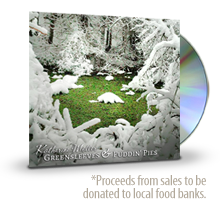Tips & Tricks: 7 Steps to a Successful Sound Check
November 2nd, 2016 by Katherine Moller
I have seen many bands perform, and have had the chance to perform many times myself. In music, you tend to learn as you go, and sometimes, things (like sound checks) are not pretty when you start because nobody has told you how to do one properly. Here are 7 tips from my years of experience:
- Arrange a time with the venue: Depending on what kind of event you are playing, you probably don’t want to be sound checking while other things are going on. This can be distracting to you and the other people. Talk to the venue/organizer to work out when the best time for you to set up your gear and do a sound check.
- Arrive early: Nothing is quite as stressful as trying to do a sound check just before the show. Things always go wrong, and trying to
 deal with them when you are feeling pressured for time is never good for your nerves, the nerves of the rest of your bandmasters, and also the nerves of the patrons. Get there early so you can deal with anything that does go wrong.
deal with them when you are feeling pressured for time is never good for your nerves, the nerves of the rest of your bandmasters, and also the nerves of the patrons. Get there early so you can deal with anything that does go wrong. - Bring extra gear: I do not have a double of everything, but I do carry extra strings, batteries, and ¼ inch cables so that I can either replace a bad piece of equipment or help out a band-mate if they forget something.
- Sing/play like you are going to in the show: A lot of times you will hear a performer very tentatively trying out their mic/instrument in the sound check. You really have to make sure that you are playing the way you will in the show so that you can balance the sound properly.
- Cover every combination of instruments: If you or your band-mates play several instruments, make sure that you run through parts of the piece that use every combination of instruments. You have to make sure that they all work and that they are all balanced properly.
- Don’t use the first song/piece from your set list to sound check: There is nothing quite like being in the audience and having heard a song 4 times during sound check to have the band turn around and start the show with it. You can certainly use a piece that is in your set, but not the very first one,
- Take a break: I find it really important to take a break between the sound check and show. Again, it is strange being in the audience having a band roll right from one into the other. When exactly did the show start?
Bonus tips:

- If you can have someone else listen to your sound from the audience perspective, it works so much better than having one of the musicians trying to balance the sound. It is hard to hear how the balance is when you are playing an instrument yourself. I have certainly mixed my own sound at many gigs, but love it when there is someone there I trust to help me out.
- Listen to the sound guy: If you are lucky enough to be doing a gig with an actual sound guy, listen to him/her! They want to test each instrument and then give you a good mix in the monitors. Pay attention and work with them. This is not the time to be jamming!
I wish you all the success with your musical endeavors! I wish I had more guidance when I first began doing gigs and running my own sound gear! I hope these tips help you out!
Comments are closed.


